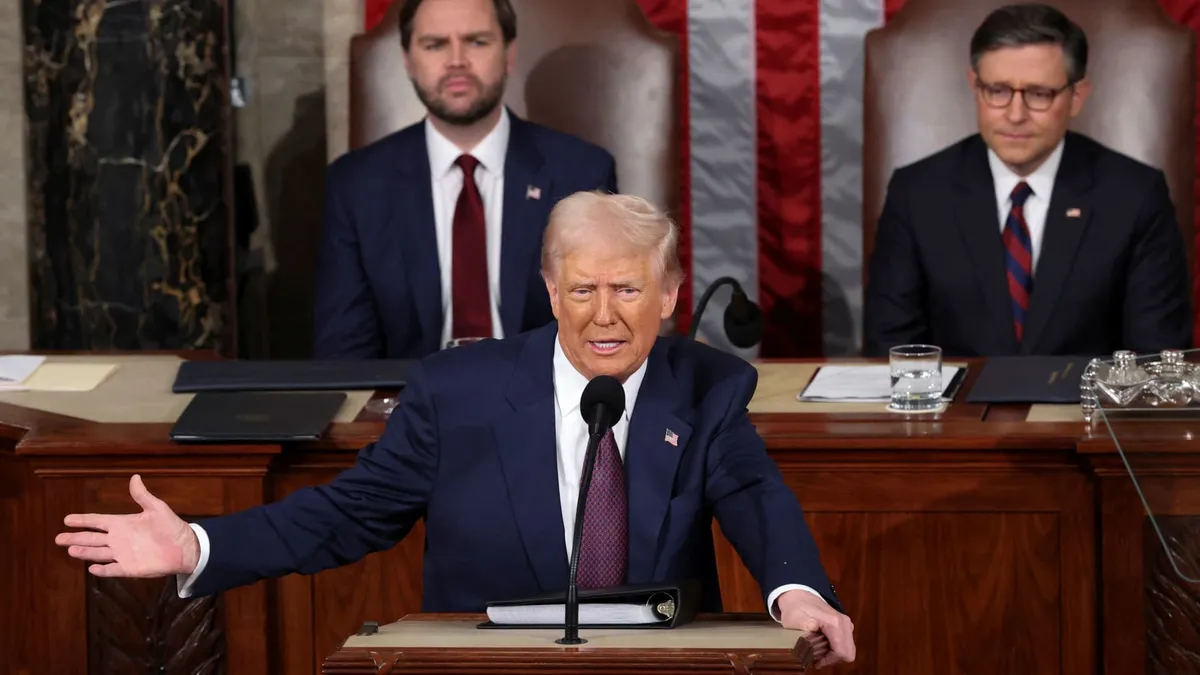
In a recent primetime address before a joint session of Congress, President Donald Trump acknowledged that his new tariffs may create a "little disturbance" in the economy. However, he firmly believes that these measures are essential for achieving the long-term benefits of his aggressive trade policy. "Tariffs are about making America rich again and making America great again," Trump declared, asserting that positive outcomes are on the horizon.
During his speech, Trump addressed the potential economic fallout, stating, "There will be a little disturbance, but we're okay with that." This statement came on the heels of a second consecutive day of stock market declines, coinciding with the implementation of Trump's sweeping 25% tariffs on imports from Canada and Mexico. While Trump maintains that these tariffs will benefit the U.S. economy, many economists caution that such measures—effectively taxes on imports—are likely to drive up prices for American consumers.
Despite the warnings from economic experts, Trump has consistently argued that tariffs are ultimately paid by foreign countries. He views them as a strategic tool for enhancing the United States' negotiating power in international trade discussions. The newly reinstated tariffs on Canada and Mexico had been temporarily suspended for a month, leading many critics to hope for a reconsideration before their reimplementation. Nonetheless, Trump chose to move forward with these tariffs, igniting fears of a potentially damaging trade war with two of America's primary trading partners.
Following the market's downturn on Tuesday afternoon, Commerce Secretary Howard Lutnick indicated that Trump might announce tariff compromise deals with Canada and Mexico the next day. This news sparked a rise in U.S. stock futures linked to all three major market averages. However, during his address, Trump offered no indication that he intended to retract the recently imposed tariffs. Instead, he insisted that both Mexico and Canada need to take more substantial actions, particularly in stopping the flow of fentanyl and other drugs into the United States.
Throughout his speech, Trump emphasized his broader tariff strategy, which he claims will result in an auto industry boom. He reiterated his vision for reciprocal tariffs, expressing confidence that these policies would generate "trillions and trillions of dollars" for the U.S. economy. As the debate over tariffs continues, the administration's approach remains under scrutiny, and the outcome of these policies could significantly impact the future of American trade relations.